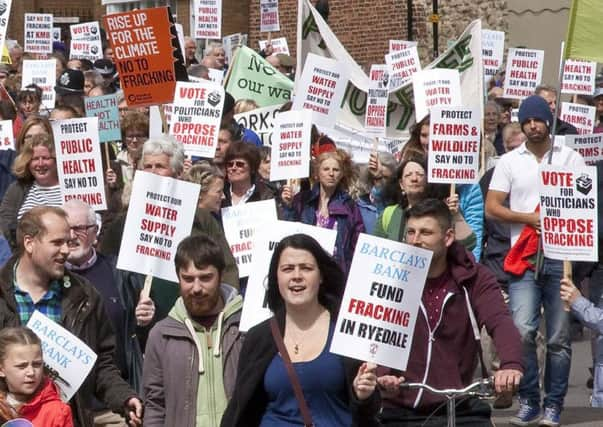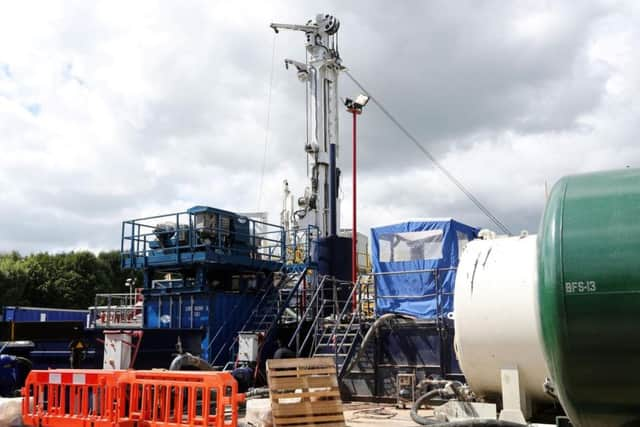ANALYSIS: The facts, the feelings and the fears involved in the fracking furore


It is only the fact that not a breath of shale gas has yet been extracted using the controversial process which has held back the advent of modern-day Luddism, although given the strength of feeling of the anti-fracking lobby it is easy to believe that some of the self-appointed protectors of this green and pleasant land are on a headlong journey towards the eve of destruction.


Advertisement
Hide AdAdvertisement
Hide AdFor all the Government’s seemingly undue haste to “get shale gas moving,” as Energy Minister Andrea Leadsom put it last month, fracking remains a pipe dream for most of the companies which have been granted licences for gas and oil exploration. Of the 230 exploratory licences issued to date, none have progressed to the point where fracking is set to become a reality in the regions with the richest levels of shale deposits.
Yorkshire, Lancashire and Lincolnshire form the epicentre of the fracking furore, a vast area of Britain which plays home to some of the UK’s most ecologically sensitive - and strikingly beautiful - countryside and National Parks.
Environmental concerns prompted a temporary ban on fracking in 2012, but that has now been lifted after a Government report concluded that it posed no threat to wildlife or habitats.


That report has not calmed the concerns of opponents of fracking, nor has their mood been helped by the threat from Ministers that they are prepared to overrule local authorities which refuse to grant planning consent.
Advertisement
Hide AdAdvertisement
Hide AdLabour MP Michael Duger has accused the Government of riding roughshod over the North with its fracking policy but Energy Minister Andrea Leadsom insist fracking is a fantastic opportunity for the UK.
One thing is clear: the Government remains a distant second in the race to win hearts and minds about one of the most emotive issues of the current Parliament. Behind all the emotion, here are a few facts about fracking:
What is fracking?
The word fracking comes from hydraulic fracturing and involves the extraction of gas reserves buried deep underground in shale rock. The reserves are accessed by drilling into them and injecting sand, water and chemicals at high pressure to release the gas, which rises through the bore holes and is collected at the surface.
Will the fracking plants be eyesores?
Not in the way that coalmines and chemical plants have traditionally blighted the landscape. Once the boreholes have been drilled, the infrastructure at the surface is minimal.
What are the dangers?
Advertisement
Hide AdAdvertisement
Hide AdDrilling test holes for shale gas has been blamed for two small earthquakes that shook property in Blackpool in 2011. Environmental campaigners in the United States claim fracking has led to dangerous levels of toxic air pollution near extraction sites and that water used in the fracking process contains large volumes of contaminants that have polluted drinking water supplies.
Aren’t we supposed to be weaning ourselves off fossil fuels?
The Government remains committed to producing more energy from renewable sources but the sheer scale of the reserves of shale gas in the UK, together with the comparatively modest cost of extracting it, make fracking an attractive proposition. The US has been producing electricity using shale gas for more than half a century at less than half the price of using coal.
How much shale gas is there?
No-one is quite sure, which is why the Government has been issuing exploratory licences to the companies who are applying for planning permission to drill test holes. The British Geological Survey estimates that reserves beneath northern England are 1,300 trillion cubic feet.
What are the timeframes?
Advertisement
Hide AdAdvertisement
Hide AdThe Government is keen for widespread exploration to begin in the next two to six months, with sites made ready for gas extraction before the end of 2017. It is estimated that some wells could run for up to 20 years.
Read more...